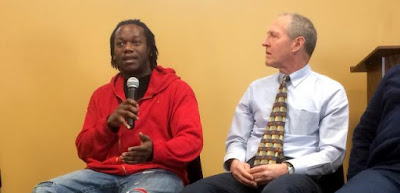Expanding our Reach: Bronx Community Solutions' Year in Bail Reform
Today Bronx Community Solutions celebrates the one year anniversary of its Supervised Release program. Our Changing the Courts blog will pay special tribute to this program over the next week with posts that highlight its imprint and give voice to those on the front lines of its implementation and impact.
There are currently close to 10,000 inmates being held at Rikers, 75 percent of whom are awaiting trial and can not afford their bail (In New York City, the misdemeanor median bail is $1,000 and $5,000 for felonies). Designed to reduce dependence on unnecessary jail time and costly monetary bail, Supervised Release allows lower-risk defendants to remain in their communities, jobs and families while awaiting trial. In addition to their court-required check-ins, all defendants in the program receive a thorough needs-assessment from BCS social workers and are referred to needed services such as vocational programs, housing or substance abuse treatment.
With a dedicated team of court representatives and social workers, Supervised Release has directly touched the
lives of hundreds of clients and impacted an extension of thousands. By way of numbers, throughout the past year we have:
- Supervised 485 cases
- Seen 272 cases closed
- And 200 (74%) closed successfully (dismissed, plea taken and/or charges reduced)
The contributions of Bronx Community Solutions' Supervised Release staff and Supervised Release programs across the city have made it possible for over 2,800 New Yorkers to avoid the trauma of a trip to Rikers and instead return to their friends, family, neighbors and colleauges.

Comments